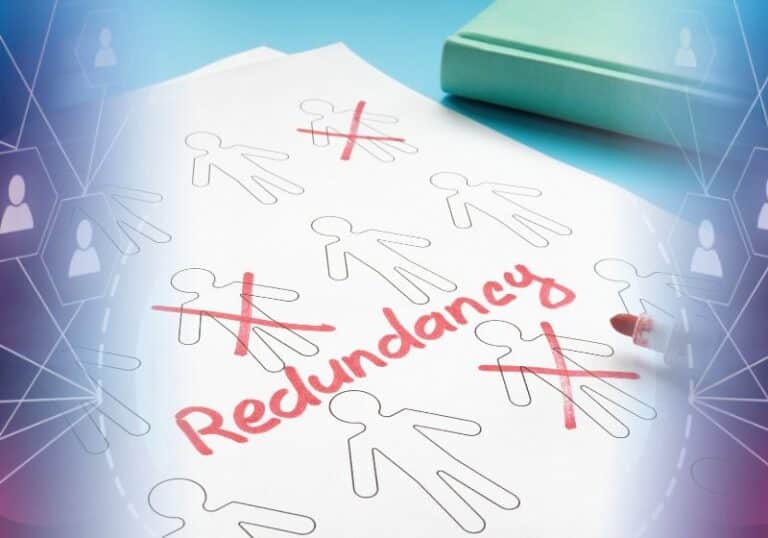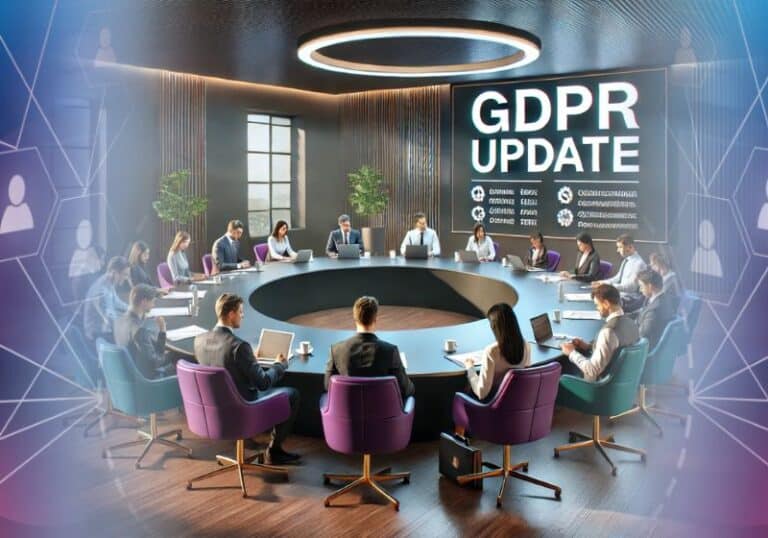How to Manage Sexual Harassment Investigations Effectively

Most organisations hope they’ll never need to deal with allegations of sexual harassment, but the reality is that many will at some point. In recent months, our advisors have handled an increasing number of calls relating to sexual harassment allegations. These cases can be complex, sensitive, and potentially damaging to both people and the business. I’m joined today by Nita, one of our senior HR advisors, to talk about how employers should handle these situations.
Investigating Allegations: A Legal and Moral Duty
Angela: Let’s start with the basics. If an employee makes an allegation of sexual harassment, do I have to investigate it?
Nita: Yes, you do. Since October 2024, employers have a proactive duty under the Worker Protection (Amendment of Equality Act 2010) Act, also known as the Prevention of Sexual Harassment legislation, to take reasonable steps to prevent sexual harassment at work. On top of that, the forthcoming Employment Rights Bill is tightening obligations on employers to create safer workplaces and ensure robust processes are in place. Ignoring or brushing off a complaint is simply not an option anymore. Even if the complainant doesn’t want a formal investigation, you still have to consider the risk to others and whether a failure to act could expose the business to legal or reputational harm.
Employers cannot wait until harassment happens. If it’s already happened, you must take steps to stop it happening again, even if the individual doesn’t want you to proceed formally. Employers must assess risks, take measures to prevent harassment, and act if it occurs. If it’s already happened, you must take action to stop it happening again.
When the Complainant Doesn’t Want to Take It Further
Angela: What if the complainant doesn’t want to take it further? This feels like a real dilemma for employers.
Nita: It is a difficult situation, but your duty to protect staff comes first. While you should respect the complainant’s wishes as far as possible, you also need to balance that with the risk to other employees. You can often reassure the complainant by explaining confidentiality measures, protection from victimisation, and the support available. But if there’s a real risk that harassment could continue, you may have to proceed with an investigation regardless.
Part of your duty now is to consider whether the incident points to a wider risk in the organisation. Employers must look at risk factors, such as power imbalances, lone working with clients, or alcohol at work events, and take steps to address them.
Allegations That May Be Criminal
Angela: Some allegations could also amount to criminal offences. How should an employer handle that?
Nita: Internal investigations are separate from criminal proceedings. A criminal case looks at whether a crime has been committed beyond reasonable doubt, while your workplace investigation considers whether behaviour breached company policies on the balance of probabilities. You don’t need to wait for the outcome of a police investigation, but you mustn’t interfere with it either. In practice, that may mean running both processes in parallel, seeking advice if needed, and considering interim measures such as suspension to protect staff and the investigation’s integrity.
Handling Complaints Against Senior Employees
Angela: How should we manage situations where the person accused is a senior employee?
Nita: These are often the most sensitive cases. Senior employees hold power and influence, and mishandling the process can erode trust right across the business. To ensure impartiality, many employers appoint an independent investigator, often using external investigator can be a huge benefit. It also helps to make sure the process is overseen by someone at board level who isn’t connected to the accused. Communicating transparently with staff is also crucial: people need to know that seniority doesn’t mean immunity.
It is important for employers to create a culture where there is no tolerance for misuse of power in workplace relationships, which means handling senior-level cases with transparency and seriousness.
Settlement Agreements and NDAs: Proceed with Caution
Angela: Could we use a settlement agreement or Non-Disclosure Agreement to resolve things quietly?
Nita: You need to be very careful here. Settlement agreements can sometimes form part of the resolution, but they’re no substitute for proper investigation and action. Non-Disclosure Agreements in particular have received a lot of negative attention, and misusing them can suggest the business is trying to silence victims. Any agreement must comply with the law, and you should always consider the cultural and reputational impact before going down this route.
The Risks of Mishandling a Complaint
Angela: What are the risks if an employer doesn’t handle things properly?
Nita: The risks are significant. From a legal perspective, failing to act could result in Employment Tribunal claims, with potentially unlimited compensation in harassment cases. From October 2024, the Equality and Human Rights Commission also has powers to enforce the new duty to prevent harassment, so regulatory action is another risk.
Beyond the legal implications, there’s the damage to morale, trust, and reputation. Staff who feel unsafe or unheard are more likely to leave and they may also speak publicly about their experience, which can be hugely damaging.
If you cannot show that you’ve taken reasonable preventative steps, such as policies, training, and risk assessments, it will be difficult to defend a claim and tribunals can increase compensation awards against you.
Be Investigation-Ready
Angela: That all sounds quite daunting. How can employers make sure they’re investigation-ready?
Nita: Preparation is key. Have clear policies in place that set out what constitutes harassment, how to report it, and how complaints will be investigated. Make sure managers are trained and confident in handling complaints sensitively. Identify in advance who in your organisation could act as an investigator and consider whether you would bring in external support for complex or senior-level cases. The Employment Rights Bill is expected to strengthen requirements for internal processes, so getting your house in order now is important.
Clear policies are the cornerstone of any investigation — they set out in black and white what is acceptable and what is not. But policies alone are not enough; investigators should also look at what training has been provided and, crucially, whether the workplace culture genuinely supports those standards in practice.
Managing Confidentiality During Investigations
Angela: How should we handle confidentiality during the process?
Nita: Confidentiality is essential to protect everyone involved, but it has to be balanced with the need to investigate fairly. That means sharing information only with those who genuinely need to know. You can also set clear expectations for all parties about not discussing the matter with colleagues. At the same time, don’t promise absolute secrecy. Witnesses may need to know certain details, and outcomes often need to be communicated at least in part.
Supporting Both the Complainant and the Accused
Angela: What about supporting the complainant and the person accused during the process?
Nita: Both sides need support. For the complainant, this may include access to an EAP, counselling, or a trusted HR contact. For the accused, remember they are entitled to a fair process too. Offer them representation at hearings, provide clear information about the process, and ensure they are not automatically treated as guilty before the investigation concludes. Balancing compassion and fairness is critical.
Prevention Is Better Than Cure
Angela: Finally, what can employers do to prevent sexual harassment in the first place?
Nita: Prevention really is the best defence. Don’t stick your head in the sand and think that it doesn’t happen here! Start with a clear anti-harassment policy, but don’t stop there. Provide regular training for staff and managers (it’s on-going training, not a one-time tick box exercise), encourage a speak-up culture, and make it clear that inappropriate behaviour, even so-called “banter”, won’t be tolerated. Senior leaders must set the tone and lead from the front: culture comes from the top. Many organisations now carry out culture reviews or anonymous surveys to check whether their workplace feels safe and respectful.
Final Thoughts for Employers
This is all very important advice Nita, thank you, what would you say your final thought for employers?
Nita: Employers have both a legal duty and a moral responsibility to deal with sexual harassment promptly, fairly, and effectively. The new Prevention of Sexual Harassment duty and the tightening of obligations under the forthcoming Employment Rights Bill mean that doing nothing is no longer an option. Treat every allegation with seriousness, ensure impartiality, and focus on prevention as much as response. Getting this right protects your people, your culture, and your business. At HR:4UK, our clients can feel confident that their policies are always up to date, aligned with the latest legal requirements, and consistent across areas such as social media, discipline, and dress code. For example, our social media policy makes it clear that online sexual harassment will not be tolerated, even if it occurs on personal accounts/devices. But we also know that policies alone are not enough! They need to be supported by training and a culture that upholds respect and accountability. If you’re not yet an HR:4UK client and would like peace of mind that your business is protected, our expert advisors are here to review your policies, provide tailored training, and help you build a workplace culture where your people feel safe and supported.
FREE DOWNLOAD
Sexual Harassment Prevention Checklist
Use this checklist to review your businesses approach and ensure you are meeting your obligations under the new legal duty to take reasonable steps to prevent sexual harassment in the workplace.
Nita Joshi
Nita has 20 years of experience working in HR, is a Chartered Member of the Chartered Institute of Personnel and Development (CIPD) and has an absolutely stellar record as an advisor.




